The airports in
Singapore and
Hong Kong are known to be great airline hubs. They both have great facilities, good food options and duty free stores. However, having spent time in both, I think I have found a favorite.
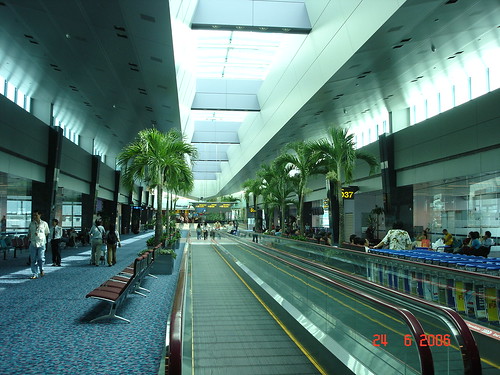
Singapore (Changi International) Airport lives up to its reputation. As the hub for Singapore Airlines, it strives to provide a terrestrial counterpart for the top notch service you get in the air with Singapore Airlines. Last week, after taking the redeye from Shanghai to Singapore, I napped in a lounge and took a shower before my meeting. I almost felt as if I hadn’t flown the night before. I was well rested and certainly refreshed. The airport features multiple gardens (albeit small), free internet access, and a variety of lounges, hourly hotels, salons, and gyms to make any stay comfortable.

There is also an area that features Xbox 360s for free game play between flights.
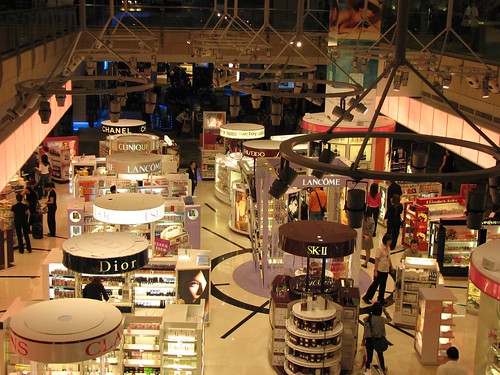 The duty free options are relatively good as well, featuring stand alone stores for Bally, Hermes, Coach and more. However, the one draw back of the airport itself is that as a tropical destination, it has a floral motif and overall environment that strikes me as more touristy (a la Hawaii) than corporate.
The duty free options are relatively good as well, featuring stand alone stores for Bally, Hermes, Coach and more. However, the one draw back of the airport itself is that as a tropical destination, it has a floral motif and overall environment that strikes me as more touristy (a la Hawaii) than corporate. 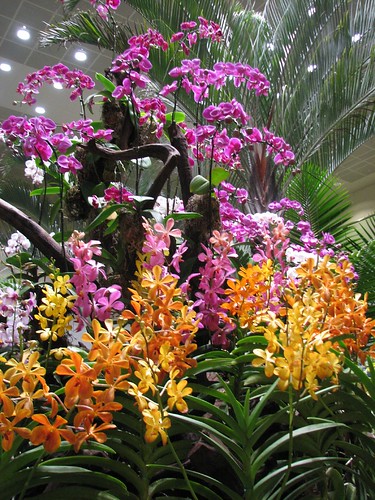 Also, although it is connected to downtown Singapore via Metro, you have to switch lines, and it is a pretty slow ride relative to the distance covered.
Also, although it is connected to downtown Singapore via Metro, you have to switch lines, and it is a pretty slow ride relative to the distance covered.
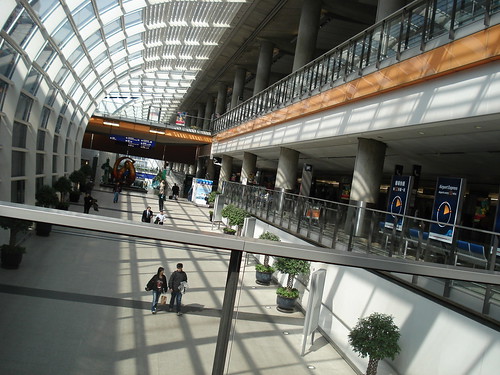 Hong Kong Airport matches its home city in excitement and ease of navigation. There is no shortage of retail and food options in this airport. Multiple sit down restaurants and an international food court featuring Aisen Ramen, Burger King, and Ben & Jerry’s provides sustenance for even the pickiest diners. The duty free selection is quite extensive.
Hong Kong Airport matches its home city in excitement and ease of navigation. There is no shortage of retail and food options in this airport. Multiple sit down restaurants and an international food court featuring Aisen Ramen, Burger King, and Ben & Jerry’s provides sustenance for even the pickiest diners. The duty free selection is quite extensive.
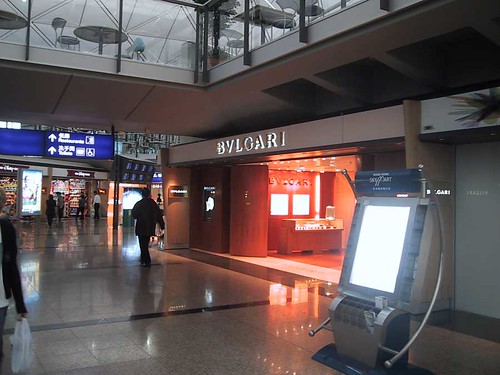
Hong Kong is known for shopping and the airport does not disappoint. Unlike Singapore, the airport is a little bit more spread out, so travelers are forced to refer to the terminal maps to find the retailer they are looking for, but the breadth (including Coach, Baccarat, and Gucci) is quite impressive. The airport also offers a guide that details suggested itineraries by length of layover. Three hours is sufficient for a quick jaunt downtown. Five hours can get you to the top of Victoria Peak. This is aided by the fact that the airport is connected to Kowloon and downtown Hong Kong via Airport Express, a high speed rail line. It’s not particularly cheap (~$12 for a one way ticket), but it’s fast (~25 minute ride) and runs every 12 minutes. Also, free wireless internet is a huge bonus (compared to Singapore’s free internet located at kiosks).
Both airports offer more amentities and a more enjoyable experience than any
US hub like
Chicago,
Dallas or
Minneapolis, but overall, I’d say the
Hong Kong airport is a better facility. It provides a lot of services, good selection, and convenient transportation options. Now if only Singapore Airlines would move their hub to
Hong Kong…







